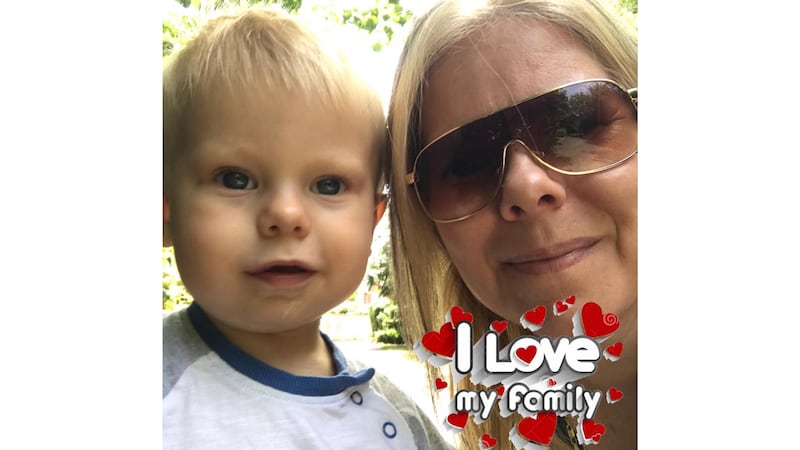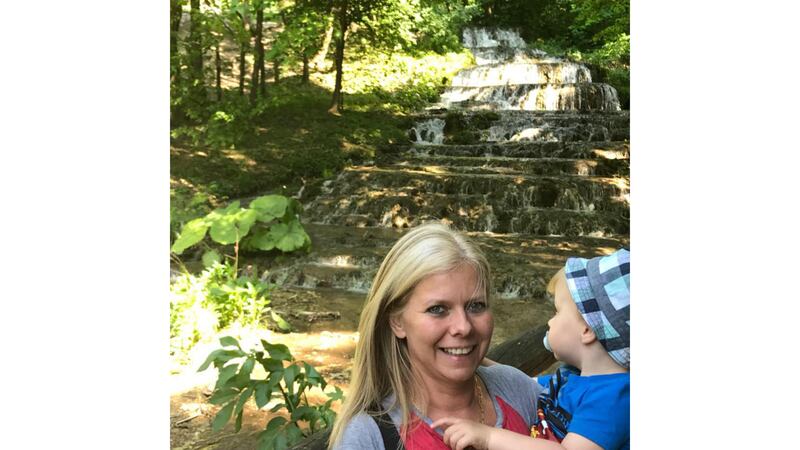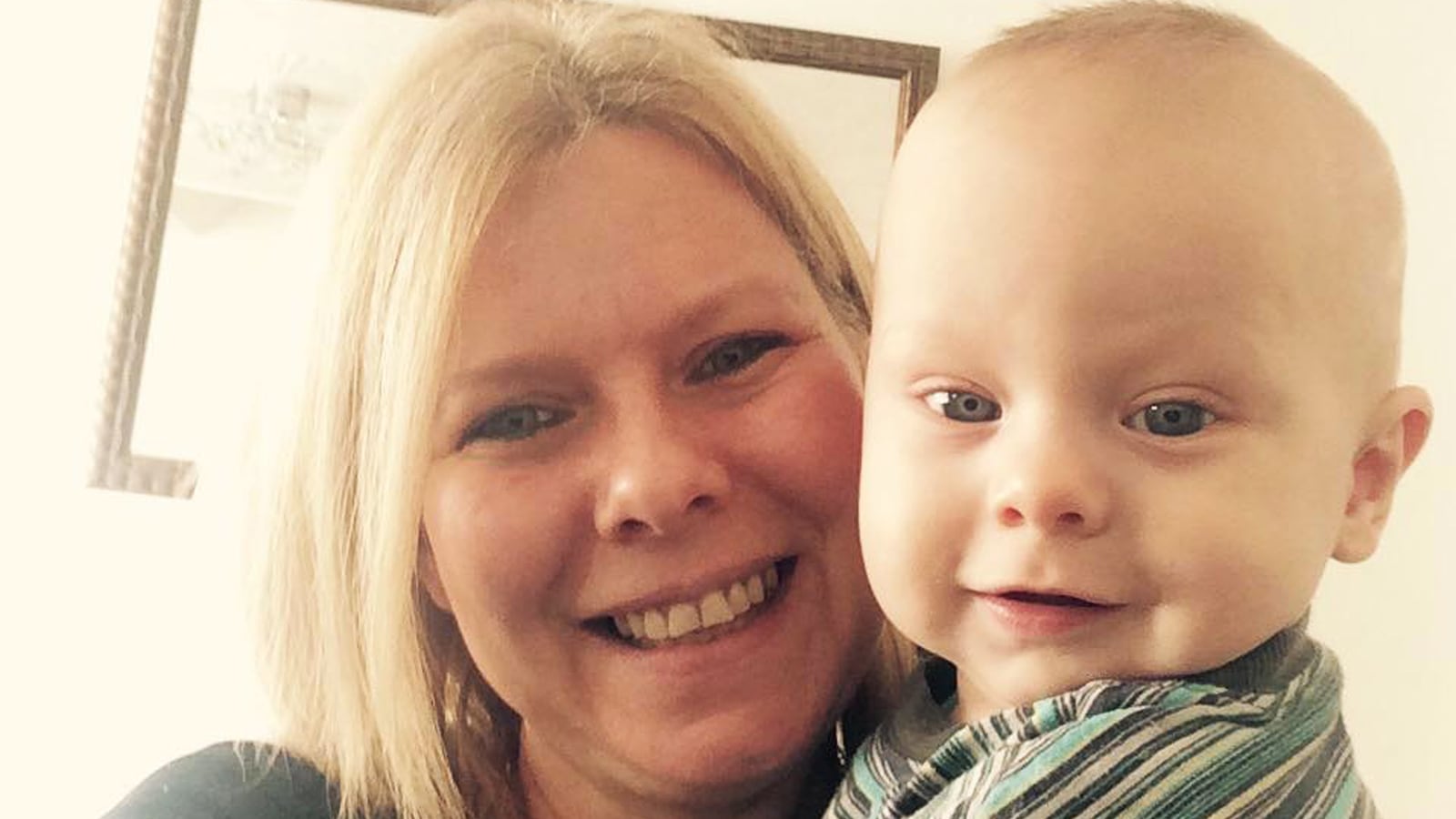BUDAPEST—A Hungarian child named Levente celebrated his second birthday last month in a private foster care center in the Bronx, without loved ones and unable to understand a single “happy birthday” he may have heard.
The bright-eyed boy with unkempt, almost platinum blond hair was housed at the Cayuga Center in the Bronx, a nondescript building painted a mustard color that sits blandly between grey and yellow, found across from a gas station and next to a busy street.

Levente was the only person who spoke Hungarian at the center, which contracts with the Office of Refugee Resettlement to provide care for children taken under the Trump administration’s “zero tolerance” immigration policy.
Pictures of Levente show an inquisitive, healthy and playful child who obviously loved his parents, much like any other kid his age. Levente returned to Hungary in the middle of July, accompanied by his 23-year-old half-sister. His parents are still in federal custody.
The boy was separated from his father, Laszlo Kovacs, and his mother, Regina Zsigmond, in mid-May. It’s not known why they attempted to enter the United States illegally, but both parents have a history in the U.S., including Zsigmond’s reported 2014 indictment on charges of federal marriage fraud to obtain residency in North Carolina. She had lived there with a previous partner from 2003 until her arrest.
As with most migration, economics probably played a role. Hungary’s minimum wage is roughly $500 a month, with the gross average monthly wage being about $1,200, according to Trading Economics.
Whatever their reason for their attempted re-entry to the U.S., monetary or otherwise, it ended up being costly for Levente, and the separation and linguistic isolation while housed in the foster care center took its toll on the child.
John Young, a friend of Zsigmond who helped return Levente to Hungary, told reporters the child wasn’t doing well and had to undergo a psychological evaluation.
Indeed, after months of living incommunicado in the Bronx, Levente may have suffered “psychological trauma” that will stick with him forever.
When a young child is cut off from loved ones and the language it has known, the separation is “most damaging to the developing brain,” Colleen Kraft, the president of the American Academy of Pediatrics (AAP) told The Daily Beast via email.
This damage is the result of “toxic stress” which causes a buildup of harmful hormones that could be mitigated by parental love, if it were available, Kraft said.
Even after two months of separation, Levente might develop lifelong learning disabilities, have trouble learning languages, and develop behavioral issues, the AAP president said.
Children subjected to this type of trauma often “do not do well in school, often are diagnosed with psychiatric illness, get into trouble with the law, live in poverty, develop addictions like smoking and alcohol abuse,” Kraft concluded.
Of course many of these problems will accrue to the hundreds of children separated from their parents on the southern border of the United States. But there is a particularly ugly irony that this Hungarian toddler would be subjected to such conditions, given the policies of Levente’s home country.
Hungary’s Prime Minister Viktor Orban, much like Trump, has used hostility toward immigrants to whip up nationalist fervor and, indeed, paranoia. Hungary passed laws in June making any assistance to “illegal migrants” a crime, has put up a militarized border wall to keep out asylum seekers and immigrants, has extended detention, and uses “humiliating” psychological evaluations to determine sexual preferences.
But not even Hungary is harsh enough to separate children from their parents, or or let them depart the country without mom or dad.

“Generally, I don't think this is happening,” says Andras Lederer, the information and advocacy officer for the Hungarian Helsinki Committee (HHC), the only organization that offers asylum seekers pro-bono legal assistance, told The Daily Beast. Kids “are kept together with their families,” Lederer said.
This is thanks in part to the Dublin III regulations, an E.U. legal framework that governs how member states approach asylum applications and deportation processes under the auspices of the Geneva Conventions.
Lederer declined to comment on Levente’s case, as the HHC was not involved. He did note that rather than separations, “it is not a rare [phenomenon] that children are sent to another E.U. country so that they can reunite with their parents.”
If Levente’s case is an example, it seems translation services are in dire need many of the children separated from their parents by immigration enforcement during Trump’s “zero tolerance” crackdown.
Lisa Frisch, the executive director of the Legal Project in Albany, a nonprofit that offers free or low-cost legal assistance to those in immigrant detention centers along the Canadian border, told The Daily Beast she’s “astonished by the number of countries that are represented at the border,” including Russia, Kyrgyzstan, Cameroon, Syria and others.
While many people are volunteering to offer translation services, we “definitely do not have enough supply to meet the demand,” Frisch said.
When asked about the number of non-Spanish-speaking children she had encountered, Frisch said she couldn’t comment on the subject.: “The government has not been transparent at all about where these children are, much less where they are from.”
The lack of transparency works two ways. Hungary, too, keeps quiet about the number of its citizens deported from the U.S. Other than an 80-year-old convicted sex offender who was deported last year after living in the U.S. for six decades, there’s not much public information on the subject.
Levente is the latest returnee. Information regarding where he and his half-sister will reside, or what steps will be taken to address the trauma caused by the separation from his parents, is not currently available.
When asked for comment, the Hungarian Consulate in New York referred The Daily Beast to its Facebook page and website, which explained that a U.S. judge ruled on July 3 that Levente can return home and said that the consulate purchased his plane ticket.
One video on the Facebook page shows Consula Ferenc Kumin driving to the airport and assuring viewers that Levente had returned home with his sister.
The consulate hailed its efforts as a diplomatic victory on its Facebook page. But Janos Vasko of Gyor, a small city in Hungary’s northwest, asked them, given the child had been in custody since mid-May, “What diplomatic success?”
It’s a valid question.




